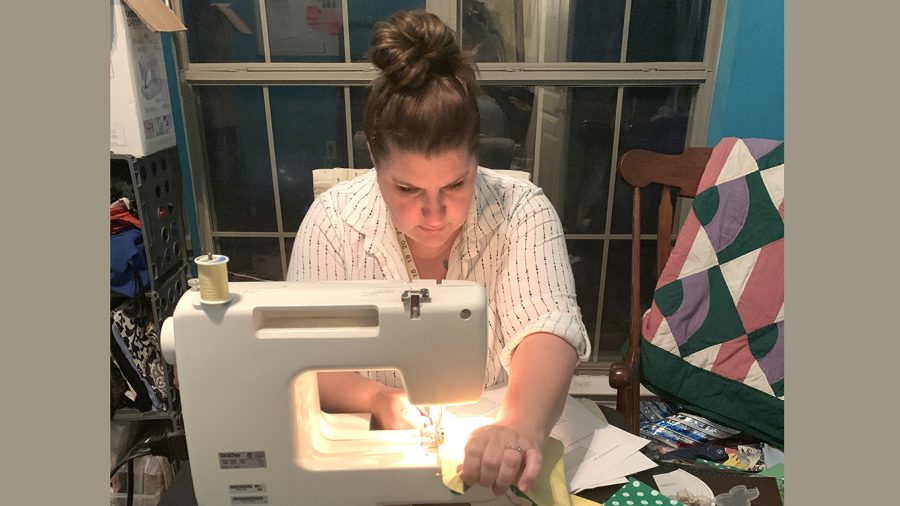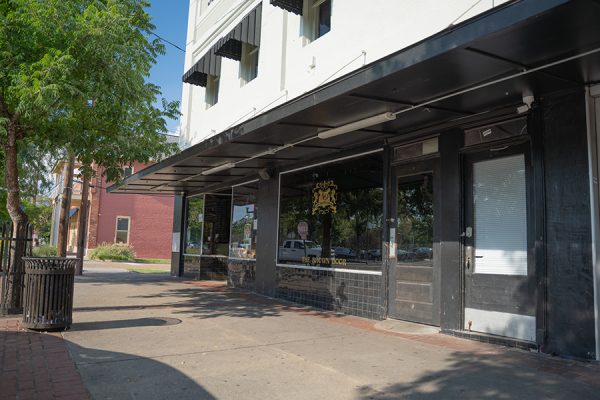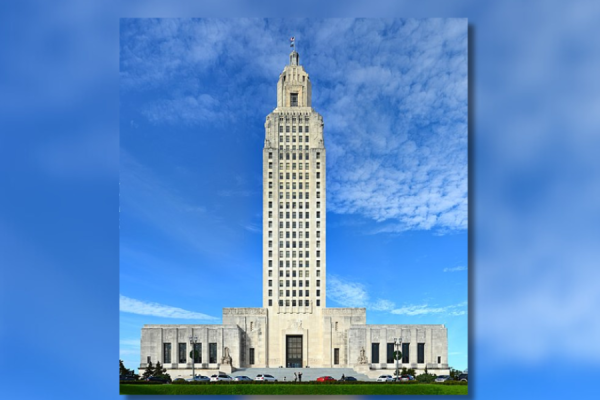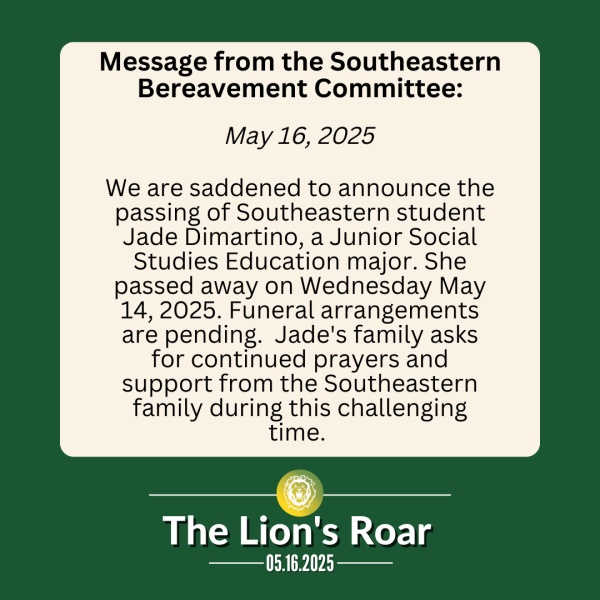‘Mask Up & Make a Difference’ combats supply shortages
Courtesy of Valerie Saba
Alumna Valerie Saba is one of many volunteers to make and donate masks to the “Mask Up & Make a Difference” initiative. Each mask, all supplies and every monetary donation will go toward assisting front-line healthcare workers during this time of low inventory and high demand.
The College of Nursing and Health Sciences is partnering with the Southeastern Foundation to help with the low supply of medical masks for healthcare workers amidst the global emergency. The project will also aid current and future graduates of the university who are working on the front lines.
The initiative, called “Mask Up & Make a Difference,” provides a means for volunteers to do one of four tasks to help the cause. Volunteers can collect supplies and donate them, make a monetary donation to the Southeastern Foundation to aid the purchase of more supplies, help sew partially or fully completed masks or teach others how to do so.
Melanie Easley, an administrative coordinator for Physical Plant Services, has donated some of her time to the cause by sewing multiple masks. Her reasoning for participating in the project is twofold.
“I wanted to do this because sewing is kind of a lost art with the younger generation, and I think there are so few of us that do this,” said Easley.
Easley’s sister-in-law is a nurse practitioner in the New Orleans area. Sewing masks is a way for her to help essential workers and make a difference while staying at home.
“I see all of these endless hours that doctors and nurses put in, as well as other essential workers, and felt that this little thing that I could do might help,” shared Easley. “My heart goes out to them. It makes me feel like I’m making a contribution to this huge mess we’re in right now. I pray for these people.”
Joan Guzzardo, volunteer for “Mask Up,” has sewed and donated over 30 masks to this project.
“I think it’s a worthy cause, and I think the mask is good protection for all people to wear,” expressed Guzzardo. “I’m a cancer patient right now, and it gives me something to do at home. This is a crazy, crazy time right now, but I think it’s the best thing we can do as a society to help one another.”
Valerie Saba, a university alumni, is another “Mask Up” volunteer. She commented on how the task of crafting masks has affected her quarantine experience.
“I think it’s made it better because I feel like I’m contributing or doing something,” said Saba. “I’m not just staying at home. I am working a little bit from home online, but it makes me feel like I’m doing something.”
She believes this initiative will not only aid the workers receiving the masks but will encourage more people to wear them.
“I think it’s great,” said Saba. “I think more people need to do it. I feel like if more people participated, then I think more people would be wearing masks. I think it’s a great give-back to the community.”
Kayla Caldwell, a sophomore communication major, shared her sentiments about the university’s initiative.
“I think it’s great because the more masks we can provide for health-care workers, the more healthy workers we will have to help those in need with no extra problems or workers at risk of getting sick,” expressed Caldwell. “Therefore, the more people they can nurse back to health.”
Volunteers who are willing, able and interested in helping with the project can find more information, download a mask pattern or make a donation at southeastern.edu/maskup. Email cnhs@selu.edu to ask questions, to request materials for making masks or to deliver partially completed or fully completed masks. There is also a collection box where masks can be dropped off, at 400 Mane St., under the Kinesiology and Health Sciences Building breezeway.
Your donation will support The Lion's Roar student journalists at Southeastern Louisiana University.
In addition, your contribution will allow us to cover our annual website hosting costs.
No gift is too small.
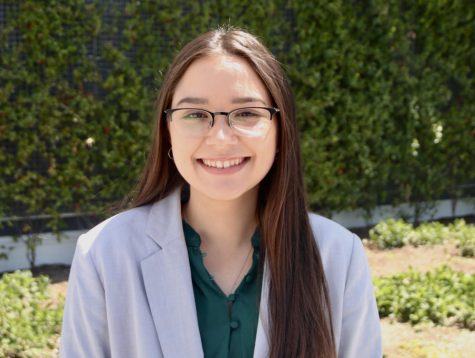
Brynn Lundy Arriago began working for The Lion's Roar in the fall of 2019, her first semester at Southeastern, and now serves as Graduate Assistant. From...


